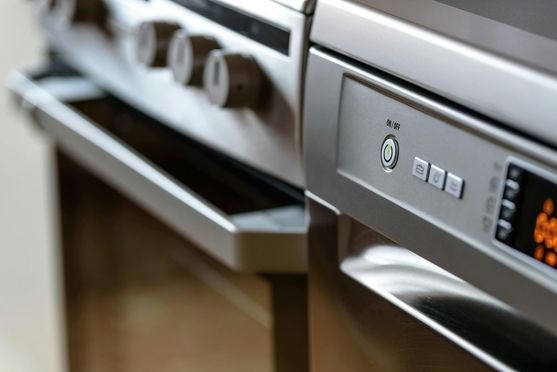Common Appliance Failures
Appliances can experience a variety of issues. Some common failures include:
Refrigerator cooling problems: This can stem from a faulty compressor or blocked vents.
Washing machine malfunctions: Issues may arise from worn belts or clogged hoses.
Oven heating inconsistencies: Malfunctioning ignitors or thermostat problems often cause this.
Identifying these failures early can save time and money. Regular maintenance, such as checking seals and cleaning filters, helps prevent these problems.
Tools and Equipment for Repair
To effectively repair appliances, we need specific tools. Essential tools include:
Screwdrivers (Flathead and Phillips): For removing panels and access points.
Pliers: To grip, twist, or cut wiring.
Multimeter: For checking electrical components and diagnosing issues.
Socket set: Useful for various bolts and screws.
Having the right tools at hand ensures we can tackle a range of repair tasks efficiently. We should also keep safety gear like gloves and goggles readily available.
Safety Precautions in Appliance Repair
Safety is paramount when repairing appliances. We should always take certain precautions:
Unplug the appliance: This prevents electrical shock while we work on it.
Use insulated tools: They reduce the risk of electrical accidents.
Follow manufacturer instructions: Each appliance has specific guidelines for repairs, which can prevent further damage.
By adhering to these safety measures, we protect ourselves and enhance the repair process. Familiarity with appliance components also contributes to a safer work environment.
Step-by-Step Repair Guides
When tackling appliance repair, having clear, step-by-step guides is essential. We can break this down into two main areas: troubleshooting for major appliances and repair procedures for small appliances.
Troubleshooting Guides for Major Appliances
For major appliances like refrigerators and washing machines, our troubleshooting approach starts with identifying the problem. We can utilize online resources to follow a structured set of questions.
Check Power Supply
Ensure the appliance is plugged in and inspect the circuit breaker.
Identify Error Codes
Many modern appliances display error codes. Refer to the user manual or an online guide to decode the messages.
Inspect Common Faults
For refrigerators, examine the door seals. For washing machines, check hoses for blockages or leaks.
By systematically following these steps, we can often pinpoint and address the issue effectively, using guides available on platforms like i Fixit for more detailed assistance.
Repair Procedures for Small Appliances
When it comes to small appliances, our repair procedures often include a mix of disassembly and component checks.
Gather Necessary Tools
Basic tools may include screwdriver sets, pliers, and a multimeter for electrical checks.
Disassemble the Appliance
Use guides to safely take apart the appliance, keeping track of screws and parts.
Identify and Replace Faulty Parts
Test components like switches or motors for functionality. Refer to online repair manuals for step-by-step instructions.
Many small appliance repairs can save us time and money while enhancing our DIY skills. We can find specific guides tailored to various small appliances on sites like i Fixit to streamline the process.
Frequently Asked Questions
In this section, we address some common inquiries regarding appliance repair. These questions cover costs, indicators of repair needs, and service recommendations to help us make informed decisions about our household appliances.
What is the average cost of appliance repair services?
The average cost for appliance repair can range from $100 to $400, depending on the type of appliance and the complexity of the issue. Diagnostic fees are often separate and may be applied to the overall repair cost.
How can you tell when an appliance is beyond repair?
Several signs can indicate that an appliance may be beyond repair. These include persistent breakdowns, extensive rust or corrosion, and a repair cost that exceeds the value of the appliance itself.
What are the most common issues that require professional appliance repair?
Common appliance problems include faulty thermostats in refrigerators, clogged or broken dishwasher drains, and malfunctioning heating elements in ovens. These issues often necessitate professional assistance to ensure safe and effective repairs.
How often should major household appliances be serviced to prevent repairs?
We recommend servicing major household appliances at least once a year to maintain their efficiency and prolong their lifespan. Regular maintenance can help identify potential issues before they require costly repairs.
What should be considered when choosing an appliance repair service?
When selecting an appliance repair service, we should consider factors such as the company's reputation, experience, and warranty on parts and services. It's also beneficial to check for customer reviews and service guarantees.
How long does it typically take for an appliance repair job to be completed?
The duration of an appliance repair job can vary significantly based on the issue. Generally, most repairs can be completed within one to two hours, though complex problems may take longer.



